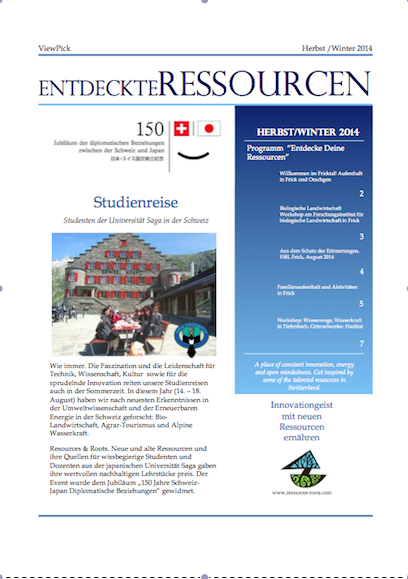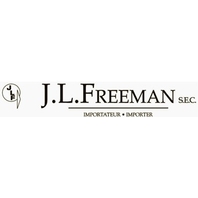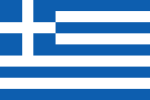Zurich, January 15, 2015
South Eastern European currency echoes
The Swiss National Bank (SNB) today announced that they are scrapping the EUR/CHF 1.20 cap (set some 3 years ago). As a response the CHF has shown considerable appreciation against the EUR and is inducing several CEE currencies towards their all-time lows against the CHF. Moreover, one should not see any quick reversal in the EUR/CHF exchange rate over the next months or so, with volatility and market speculation in CHF to remain high.
 The CHF appreciation is having considerbly severe implications on the CE/SEE region, especially given the noticeable CHF denominated loan shares in Poland, Hungary but also Croatia, Romania or Serbia.
The CHF appreciation is having considerbly severe implications on the CE/SEE region, especially given the noticeable CHF denominated loan shares in Poland, Hungary but also Croatia, Romania or Serbia.
Whereas the projections were a more or less steady EUR/CHF exchange rate at just above 1.20 throughout 2015, the current CHF appreciation will cause CHF/PLN, CHF/HUF, CHF/RON, CHF/HRK and CHF/RSD considerable depreciation compared to previous forecasts of roughly 20%. Additionally given that the current exchange rate forecasts for EUR/PLN, EUR/HUF and EUR/RON are already on the more positive side, a revision towards weaker EUR/LCY has become more likely. Thereby negative effects for PLN, HUF and RON against CHF could be higher, whereas specialists currently see no EUR/LCY adjustment needed in Serbia or Croatia. Additional depreciation pressure of the CEE currencies against the EUR and hence the CHF in the months ahead may arise from the outlook for very subdued price growth in nearly all CEE markets (excluding Russia and Ukraine) as well as the outlook for more monetary easing or other non-orthodox monetary policy measures compared to Eastern European specialist current baseline forecasts.
With regards to potential effects on the CEE banking sectors we see the effects from the recent CHF jump to be strongest in Poland given the fact that in Hungary some FCY and CHF exposures have already disappeared due to (enforced) conversions, while the conversion rate for the next round has already been fixed. Nevertheless, there is also modest CHF loan exposure out there in the Croatian, Serbian and Romanian banking sector. That said it has to be stressed that CHF exposures in CEE are by and large in retail lending, while a lot of CHF borrowers had been already under pressure before the most recent CHF sprint./RLU

 L’abandon du taux plancher par la Banque nationale suisse (BNS), annoncé jeudi, va laisser des traces dans l’économie helvétique notamment au niveau des exportations, a estimé l’économiste en chef d’UBS pour la Suisse, Daniel Kalt. La Confédération ne devrait cependant pas tomber en récession après cette décision, a-t-il indiqué à des journalistes.
L’abandon du taux plancher par la Banque nationale suisse (BNS), annoncé jeudi, va laisser des traces dans l’économie helvétique notamment au niveau des exportations, a estimé l’économiste en chef d’UBS pour la Suisse, Daniel Kalt. La Confédération ne devrait cependant pas tomber en récession après cette décision, a-t-il indiqué à des journalistes. La Banque mondiale a réduit mardi ses prévisions de croissance de l’économie mondiale en 2015 en raison d’une conjoncture afaiblie dans la zone euro, au Japon et sur certains marchés émergents.
La Banque mondiale a réduit mardi ses prévisions de croissance de l’économie mondiale en 2015 en raison d’une conjoncture afaiblie dans la zone euro, au Japon et sur certains marchés émergents.

 Emmi has improved its strategy in North America over the past few months. Its planned measures include making more targeted use of resources to strengthen its position in the speciality cheese business. The acquisition of 100 % of the shares in the cheese business of J.L. Freeman Limited Partnership Cheese Import and Distribution Operation (hereinafter: J.L. Freeman), domiciled in Boucherville, Canada, marks another step in the desired direction.
Emmi has improved its strategy in North America over the past few months. Its planned measures include making more targeted use of resources to strengthen its position in the speciality cheese business. The acquisition of 100 % of the shares in the cheese business of J.L. Freeman Limited Partnership Cheese Import and Distribution Operation (hereinafter: J.L. Freeman), domiciled in Boucherville, Canada, marks another step in the desired direction. J.L. Freeman is one of the leading cheese importers in Canada. More than half of its imports are cheeses from Switzerland – such as Le Gruyère AOP, Emmentaler AOP, Fondue and various specialities – and another important part is cheese from Italy and France. J.L. Freeman generates sales of around CAD 38 million (almost CHF 35 million) and employs 18 members of staff in its cheese business.
J.L. Freeman is one of the leading cheese importers in Canada. More than half of its imports are cheeses from Switzerland – such as Le Gruyère AOP, Emmentaler AOP, Fondue and various specialities – and another important part is cheese from Italy and France. J.L. Freeman generates sales of around CAD 38 million (almost CHF 35 million) and employs 18 members of staff in its cheese business. The true perspective of a new Tunisian government in the coming weeks gives positive signals for the sovereign’s credit profile drawn by Fitch Rating Agency. The electoral process has proceeded smoothly despite security risks, and electoral outcomes have increased the likelihood of the formation of a stable, coherent government.
The true perspective of a new Tunisian government in the coming weeks gives positive signals for the sovereign’s credit profile drawn by Fitch Rating Agency. The electoral process has proceeded smoothly despite security risks, and electoral outcomes have increased the likelihood of the formation of a stable, coherent government. La Grèce est au bout du souffle. Les banques et autres investisseurs privés ont en fui ce pays lors de la première crise, celle du printemps 2010. Les institutions publiques (l’état ou organisations) en détiennent la plus grande partie de la lourde dette.
La Grèce est au bout du souffle. Les banques et autres investisseurs privés ont en fui ce pays lors de la première crise, celle du printemps 2010. Les institutions publiques (l’état ou organisations) en détiennent la plus grande partie de la lourde dette.
 Finnish nuclear consortium Teollisuuden Voima Oyj (TVO) said Thursday it’s planning to cut up to 110 jobs, around 13% of its work force, to lower annual costs by 15 million euros ($17.7 million).
Finnish nuclear consortium Teollisuuden Voima Oyj (TVO) said Thursday it’s planning to cut up to 110 jobs, around 13% of its work force, to lower annual costs by 15 million euros ($17.7 million).